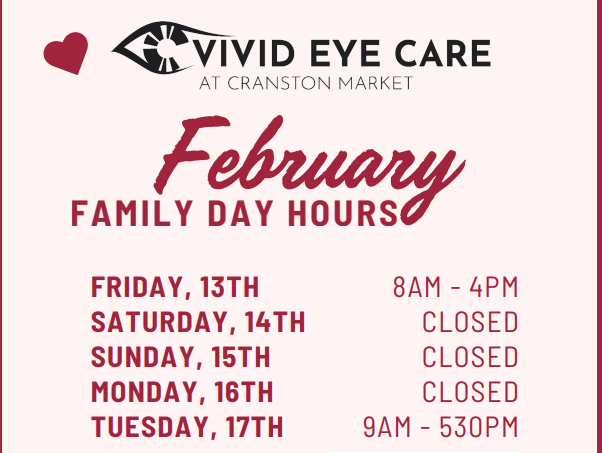Have you ever found an old pack of contact lenses tucked away in a drawer and wondered if they’re still safe to use? If you wear contacts, you’ve probably noticed expiration dates printed on the packaging. Those dates aren’t just suggestions—they’re essential safety markers that protect your vision and eye health.
Contact lenses do expire, and using them past their expiration date can lead to serious complications. Understanding why these dates matter and how to properly care for your lenses will help you maintain healthy, comfortable vision for years to come.
How Long Do Different Types of Contact Lenses Last?
The lifespan of contact lenses varies significantly based on their type and material. Each category has specific replacement schedules designed to maximize safety and comfort.
- Daily Disposables are designed for single use and should be discarded at the end of each day. These lenses offer the ultimate convenience and hygiene, since you start fresh every morning.
- Weekly and Monthly Lenses can be worn for their designated period when properly cleaned and stored. Monthly lenses, for example, should be replaced every 30 days from when you first open the package—not 30 days of actual wear time.
- Rigid Gas Permeable (RGP) Lenses are more durable and can last up to one year with proper care. However, they require meticulous cleaning routines and regular check-ups with your eye care professional.
Always check the manufacturer’s packaging for specific expiration dates and replacement schedules. We can also provide personalized recommendations based on your eye health and wearing habits.
Why Do Contact Lenses Have Expiration Dates?
The materials used to make contact lenses naturally break down over time. This degradation process affects lens structure, flexibility, and moisture retention capabilities.
As lenses age, their material composition changes. The polymers that give contacts their shape and breathability begin to deteriorate, making the lenses less effective at allowing oxygen to reach your cornea. This reduction in oxygen flow can cause discomfort and potentially harm your eye health.
Expired lenses also become more susceptible to deposits from proteins, lipids, and other substances that are naturally present in your tears. These buildup deposits create rough surfaces that can scratch your cornea and provide breeding grounds for harmful bacteria.
The lens surface becomes increasingly difficult to clean effectively as it ages. Even with diligent cleaning routines, microscopic organisms can embed themselves in the deteriorated material, creating risks of infections that proper hygiene alone cannot eliminate.
Contact Lens Solutions Expire Too
Your contact lens care products have an expiration timeline that’s equally important to follow. Most multipurpose solutions remain effective until their printed expiration date when stored properly and unopened.
Once opened, however, the clock starts ticking. Most solutions should be discarded within three months of opening, even if they haven’t reached their printed expiration date. The preservatives that prevent bacterial growth become less effective over time.
Preservative-free solutions have even shorter lifespans. These single-use vials should be discarded within 24 hours of opening since they lack the antimicrobial agents found in regular solutions.
Using expired solutions can compromise your lens cleaning routine and introduce contaminants that fresh solution would normally eliminate.
Serious Risks of Using Expired Contact Lenses
Wearing expired contact lenses exposes your eyes to several dangerous complications that can threaten your vision permanently.
- Eye infections top the list of concerns. Keratitis, an infection of the cornea, can develop when bacteria or fungi grow on compromised lens surfaces. This condition causes severe pain, light sensitivity, and can lead to scarring that permanently affects your vision.
- Vision problems often develop as expired lenses lose their optical clarity and proper shape. You might experience blurred vision, halos around lights, or difficulty focusing—problems that can make activities like driving dangerous.
- Corneal damage can occur when deteriorated lenses scratch or irritate the surface of the eye. The cornea has remarkable healing abilities, but repeated damage from expired lenses can cause permanent scarring.
- Severe complications like acanthamoeba keratitis, though rare, can result in devastating vision loss. This parasitic infection is particularly associated with poor lens hygiene and expired products.
What to Do If You Accidentally Wear Expired Lenses
Here’s what to do if you realize that you’ve accidentally been wearing expired lenses:
- Remove them immediately and discard them safely. Don’t attempt to clean or reuse them under any circumstances.
- Monitor your eyes closely for the next 24-48 hours. Contact your eye care professional if you experience any unusual symptoms, including redness, pain, discharge, blurred vision, or light sensitivity.
- Even if you feel fine, mention the incident during your next routine eye exam. Your optometrist can check for any subtle signs of irritation or damage that might not be immediately apparent.
Essential Storage & Care Tips

Proper lens care significantly extends the safe lifespan of your contacts and reduces infection risks.
- Hand hygiene forms the foundation of safe contact lens use. Always wash your hands thoroughly with soap and water before touching your lenses. Avoid antibacterial soaps with moisturizers, as residue can transfer to your lenses.
- Never rinse lenses with tap water, distilled water, or saliva.
- Never reuse solution or “top off” your lens case with fresh solution mixed with old solution.
- Replace your case every month. Lens cases harbour bacteria over time, even with regular cleaning.
Protect Your Vision with Professional Care
At Vivid Eye Care, we’re passionate about helping you enjoy the benefits of contact lenses safely. Our comprehensive eye exams include contact lens fittings, care instructions, and ongoing monitoring to ensure your eyes remain healthy and comfortable.
Don’t take chances with expired lenses or questionable care products. Schedule your contact lens consultation today to learn about the latest lens technologies and proper care techniques that will keep your vision crystal clear and your eyes healthy for life.






















